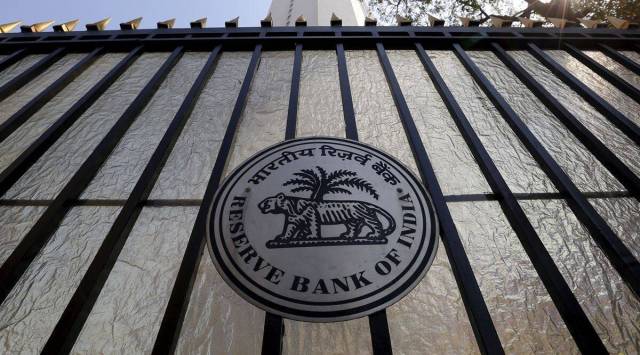Enough stocks for exchange, very marginal impact on economy: RBI
In his first public comments after the Friday announcement on the withdrawal, Das said this will have a “very, very marginal” impact on the economy since the Rs 2,000 notes comprise 10.8 per cent of the currency in circulation.
 The RBI will be sensitive to the requirements of all people, including Indians travelling abroad, though the September 30 deadline has been kept for people to take it seriously. (Express Photo)
The RBI will be sensitive to the requirements of all people, including Indians travelling abroad, though the September 30 deadline has been kept for people to take it seriously. (Express Photo)NOTING THAT THE withdrawal of Rs 2,000 denomination notes is a part of currency management, Reserve Bank of India (RBI) Governor Shaktikanta Das Monday said “most of the notes” are expected to return to the banking system.
In his first public comments after the Friday announcement on the withdrawal, Das said this will have a “very, very marginal” impact on the economy since the Rs 2,000 notes comprise 10.8 per cent of the currency in circulation.
When asked if the high-denomination notes would get diverted to purchase of gold and real estate, Das said that depends on the public. To a query on tracing black money, he said scrutiny of cash deposits is not done by RBI.
“The RBI does not do any scrutiny. It is (by) other agencies like income tax (department)… and others will follow their normal procedure like (that) for Rs 50,000 and above… banks have their own reporting systems like CTR, STR (cash transaction report, suspicious transaction report),” the Governor added.
He said existing rules for cash-to-cash exchange transactions or cash deposits will continue to remain as it is. “We have not come out with an additional procedure. You must be aware that there’s an income tax rule if you deposit cash above Rs 50,000 then you have to produce your PAN. So existing rules will apply,” he said.
On the question of re-introduction of the Rs 1,000 note, the RBI Governor said it is a “speculative” question and there is “no such proposal at the moment”. “… as you know Rs 2,000 notes were not commonly used in any transactions. I have not seen or in fact, anecdotally, we have done some informal surveys, in various locations in India. We have found that hardly Rs 2,000 notes are used for carrying out transactions. So, therefore, economic activity will not be impacted,” he said.
“Let me assure you… we have more than adequate quantity of printed notes already available in the system, not just with the RBI, but also at the currency chests which are operated by the banks… there is no reason to worry whatsoever. We have more than sufficient stocks,” Das added.
He said notes can be exchanged over a window of four months. “There is no reason to rush to the bank. Take your time. You have four months, whenever it is suitable, you can exchange them. You don’t have to rush, take your own time,” he said.
The RBI will be sensitive to the requirements of all people, including Indians travelling abroad, though the September 30 deadline has been kept for people to take it seriously. “Because otherwise if you leave it open ended, then it becomes a kind of endless process… and the legal tender character we have said that it continues… Let me assure all of you… and so many people or Indians who are living abroad or who have gone on a foreign trip for a long foreign trip… let me assure the people who are abroad, the people who are now in the foreign countries, and let me assure people who are within India, that RBI will be sensitive to whatever difficulties or whatever representations we come across. It will be our endeavour to address the difficulties of the people and to complete the entire process in a smooth manner,” he said.
After Friday’s announcement, the RBI has asked all banks to provide deposit and/ or exchange facility for Rs 2,000 banknotes from May 23 to September 30, 2023 to complete the exercise in a time-bound manner and to provide adequate time to the members of public.
As part of a clean note policy, Das said, the RBI has been conducting such exercises of withdrawal of currency notes from time to time. Such an exercise was also undertaken in 2013-14, when the notes which were printed prior to 2005, were withdrawn from public circulation. This exercise to withdraw Rs 2,000 banknotes is similar to the one done in 2014, he said.
The RBI Governor also said security features of the Rs 2,000 banknotes have not been compromised even though there are always efforts to breach against such features. “Most of the fake currency in the market is actually sophisticated photocopy. Security features of these high-value currency notes have not been breached. But, in any system there are always efforts. Most of the efforts take place outside the country, or to breach the security features and to sort of inject fake currency into the system. So, a high-value note is always prone to, it is susceptible or vulnerable to, efforts on the part of fraudsters to try and clone. That is a fact. But this time around our decision is mainly driven by a need to ensure clean note policy,” he said.
Stating that the country’s currency management system is robust, Das said the RBI monitors liquidity on a day-to-day basis and the liquidity in the banking system will be managed. “Liquidity system will be managed. Last week, we undertook a repo variable rate repo auction of Rs 50,000 crores because at the system level, there is still about Rs 1 lakh crore liquidity available at the system level. But certain entities, banks had more liquidity, and certain banks were running short of liquidity. So, our repo operation last week was only to address the problems of such banks which did not have liquidity.”


- 01
- 02
- 03
- 04
- 05




























